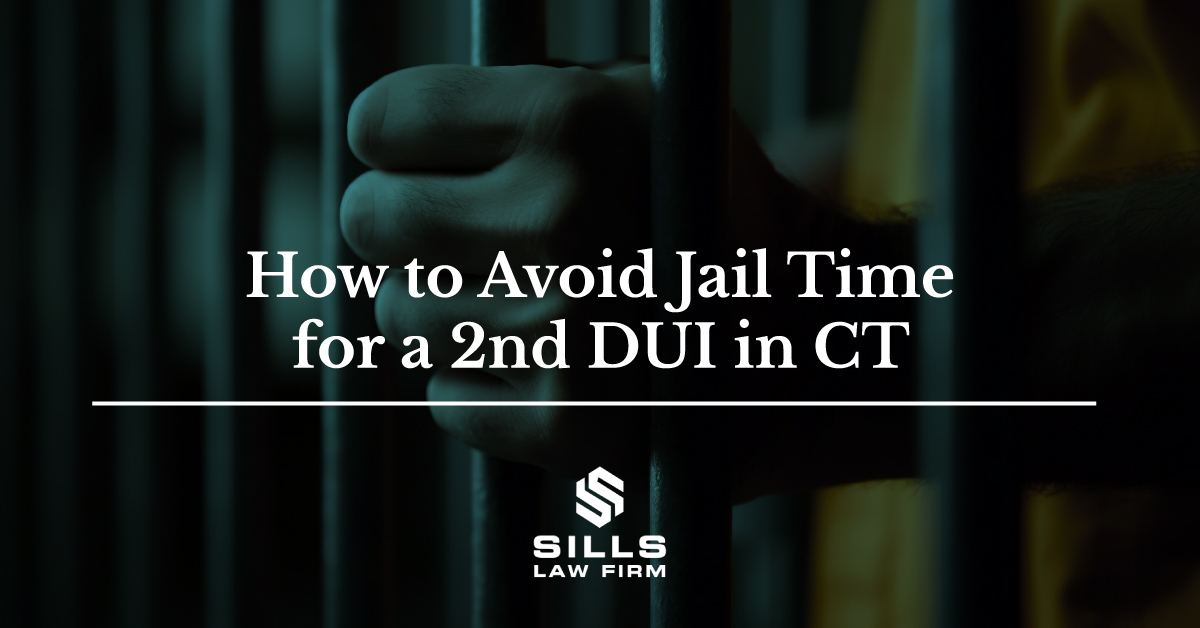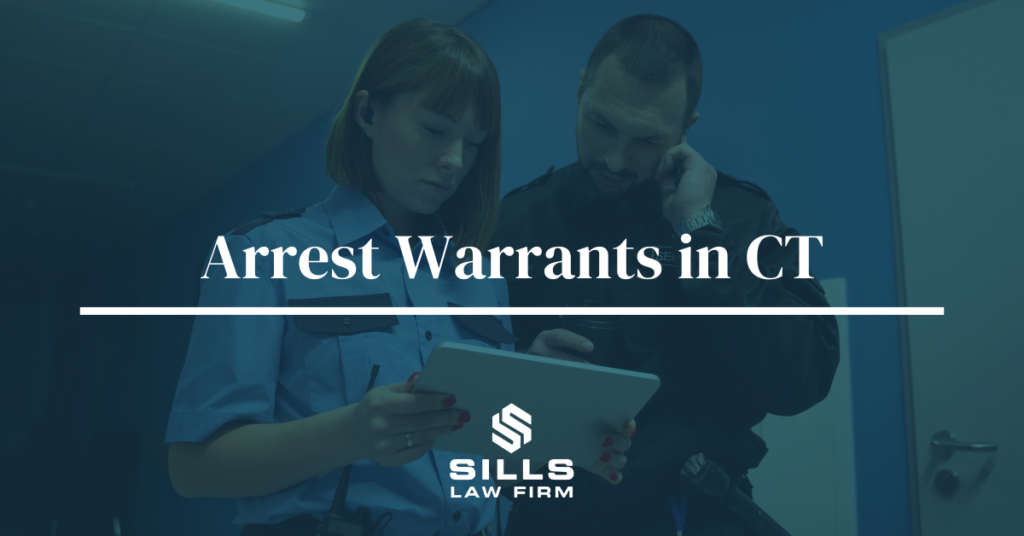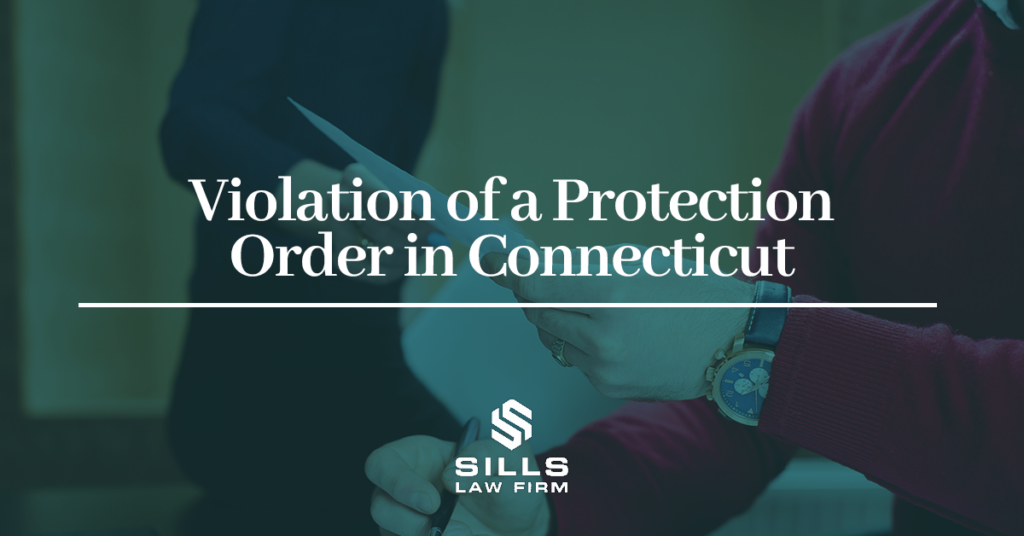Connecticut takes a hard stance against drunk driving. For those facing a DUI charge for the first time, the process can be worrying enough, but a second DUI offense raises the stakes even higher. Since it is seen as evidence of risky behavior, it invites harsher penalties, including fines, license suspension, and at least 120 days of jail time. In fact, avoiding jail for a second DUI is practically impossible, as the state enforces mandatory minimum sentencing. This means that the court cannot suspend or reduce the sentence in any way.
Understanding the full scope of potential consequences is essential, especially when dealing with a second DUI. This is not merely a legal infraction; it’s a matter that affects your reputation, career, and personal life. Jail time in particular is a severe penalty that you understandably want to avoid, but the only way to do so is to avoid conviction or qualify for an alternative sentencing option.
This is where skilled legal representation is crucial. If you or someone you know is facing a second DUI in Connecticut, you’ll want to speak to an experienced DUI attorney as soon as possible. The Sills Law Firm provides top-rated criminal defense services and can help you understand your options and possibly avoid jail time.
Understanding the Second DUI Offense in Connecticut
In Connecticut, a DUI is defined as operating a motor vehicle while under the influence of alcohol or drugs. It involves having a blood alcohol content (BAC) of 0.08% or higher for most drivers, 0.04% for commercial drivers, and any detectable amount for drivers under 21. Drunk driving charges that occur within 10 years of a previous conviction are considered a second (or subsequent) offense.
While a first-time DUI conviction is undoubtedly serious, a second DUI offense is treated with even more severity. Here’s how the two differ in terms of criminal consequences:
- Stricter Penalties: The criminal penalties for a second DUI are more severe, reflecting the law’s view that a repeat offense indicates a disregard for public safety.
- Mandatory Minimum Jail Time: Unlike a first offense, a second DUI conviction mandates jail time, showing that the state considers it a significant transgression.
The penalties facing a second-time DUI offender are robust, designed to deter future offenses and reflect the serious nature of the crime. They include:
- Fines: Ranging from $1,000 to $4,000.
- 45-Day License Suspension: Loss of driving privileges for up to 45 days, followed by three years of driving with an ignition interlock device. Those convicted must take their IID to a service station to be tested once a month
- Jail Sentence: Mandatory minimum of 120 days in jail, with a potential sentence of up to two years. Many second-time DUI convictions result in a two-year sentence, but this does not mean the offender will serve the full two years in jail. The court often imposes the maximum sentence and then suspends it, meaning that the offender is only required to serve the mandatory jail time, with the remaining time hanging over them as a potential punishment. Should the offender violate probation, this suspended portion of the sentence could be activated, resulting in additional jail time.
- Community Service: At least 100 hours of community service may be required.
- Probation Period: The offender may also face months of probation with specific conditions.
A second DUI offense in Connecticut is a serious matter. Understanding the nature of this charge, the differences from a first offense, and the potential penalties, especially jail time, is vital for anyone facing this situation. Getting legal advice and representation from a criminal defense attorney can make a substantial difference in the outcome, minimizing the impact on your life and future.
Possible Defenses For a Second DUI
While facing a second DUI is an intimidating prospect, it’s crucial to recognize that a charge does not necessarily equal a conviction. There are legal defenses that experienced attorneys can employ to challenge the prosecution’s case, and these may help you avoid a conviction and jail time. Here’s a closer look at some of these defenses:
- Challenging the Traffic Stop: Law enforcement must have a valid reason for pulling you over, such as a traffic violation or noticeable signs of impairment. If your criminal defense lawyer can demonstrate that the stop was made without probable cause, the evidence collected during the stop may be deemed inadmissible, potentially leading to a dismissal or reduction of the criminal charges.
- Challenging the Chemical and Field Sobriety Tests: Sobriety tests play a key role in DUI charges, but they are not foolproof. A qualified lawyer may challenge the accuracy and validity of the tests if:
- The police officer did not follow correct procedures or lacked the necessary training.
- Environmental conditions or health factors may have skewed the results of a blood sample or breath sample.
- Improper breathalyzer calibration or maintenance may have led to inaccurate readings.
Whether it’s questioning the legitimacy of the traffic stop, challenging the reliability of sobriety tests, or uncovering procedural errors, an experienced defense attorney can dig deep into the details of your case to find weaknesses in the prosecution’s arguments. These strategies are not merely theoretical but can be vital tools in avoiding a conviction and jail time.
Hiring a Competent DUI Attorney is Crucial
Without legal representation, you may find yourself at a disadvantage when facing prosecutors with vast resources and experience, so choosing the right criminal defense lawyer can make a big difference in the outcome of your case. Consider the following aspects when selecting legal counsel.
- Experience and Expertise: Look for a skilled attorney with a strong background in DUI defense, as they’ll have the necessary knowledge of the laws and procedures specific to this type of case in Connecticut.
- Reputation: Research the attorney’s reputation through online reviews, references, or by asking for referrals from friends or family members who’ve faced similar legal issues.
- Communication and Compatibility: It’s important to feel comfortable with your attorney. Make sure you understand how they plan to keep you informed and whether their communication style matches your preferences.
From examining evidence and negotiating plea deals to standing up for you in court, a skilled attorney can be instrumental in helping you address a second DUI in CT. The combination of their experience, resources, and legal acumen can make a significant difference in the outcome of your case, potentially steering you away from harsh penalties and preserving your rights and reputation.
FAQs
Are Repeat DUI Offenders Eligible for Pretrial Alcohol Education Programs?
It depends on the circumstances and your legal history. In Connecticut, if you are granted the Alcohol Education Program (AEP), you can only seek it again after a ten-year period has elapsed. However, having a DUI conviction on your record makes you ineligible for AEP.
Therefore, in the context of a repeat DUI offender, eligibility for the AEP in Connecticut is nuanced and subject to specific legal conditions, including prior convictions and the timing of the offenses. It is always advisable to consult with an experienced lawyer to fully understand your options and potential defenses.
What if My Previous DUI Conviction Happened in Another State?
The legal interpretation of DUI convictions can vary between states, and in this particular situation, it brings an interesting point to light. For example, the New York Driving While Impaired (DWI) statute is not considered equivalent to a DUI in this state. As such, a conviction in New York for DWI is not treated as a prior conviction in Connecticut.
Therefore, if you are convicted of a DWI in a state like New York and subsequently arrested for a DUI here, you would still be eligible to apply for the Alcohol Education Program (AEP). It’s not automatically considered a repeat offense because the DWI doesn’t count as a DUI under Connecticut law. However, this isn’t the case with all states,
It’s also important to understand that being eligible to apply for the AEP does not guarantee that you will be approved. The decision to grant or deny the program is within the discretion of the trial court judge in Connecticut. The judge may evaluate various factors related to your case and make a determination accordingly.
Is Connecticut’s Pre-Trial Impaired Driving Intervention Program Available to Repeat Offenders?
The Pre-Trial Impaired Driving Intervention Program (IDIP) is an alternative sentencing option specifically accessible to:
- Individuals who do not have any DUI conviction on their criminal record, whether in Connecticut or any other state.
- Those who have not participated in the IDIP (or an equivalent program in another state) within the past 10 years.
The 10-year lookback period begins on the date a judge granted your prior application for IDIP (or an out-of-state equivalent program). If 10 years have elapsed since that date, you become eligible to apply for the Connecticut first-time offenders program following a new DUI arrest. If you complete the program successfully, it could lead to a dismissal of the charges and keep you out of jail.
Get Legal Advice From a Connecticut DUI Lawyer Today
Connecticut’s hard stance against drunk driving means that the laws are stringent and the penalties are severe. At The Sills Law Firm, our experienced DUI defense lawyers understand the gravity of your situation and have the knowledge, experience, and commitment to guide you through the legal process. Don’t leave your future to chance: contact us today to understand your options, strategize a strong defense, and take control of your life once again. For more information or to schedule a consultation, call (866) 970-9818 or contact us online today.






